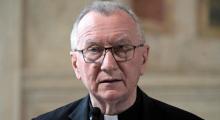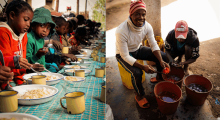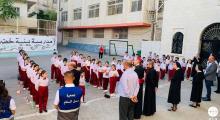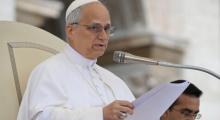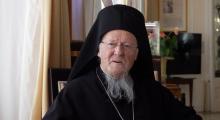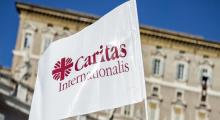Issued by the Catholic Center for Studies and Media - Jordan. Editor-in-chief Fr. Rif'at Bader - موقع أبونا abouna.org
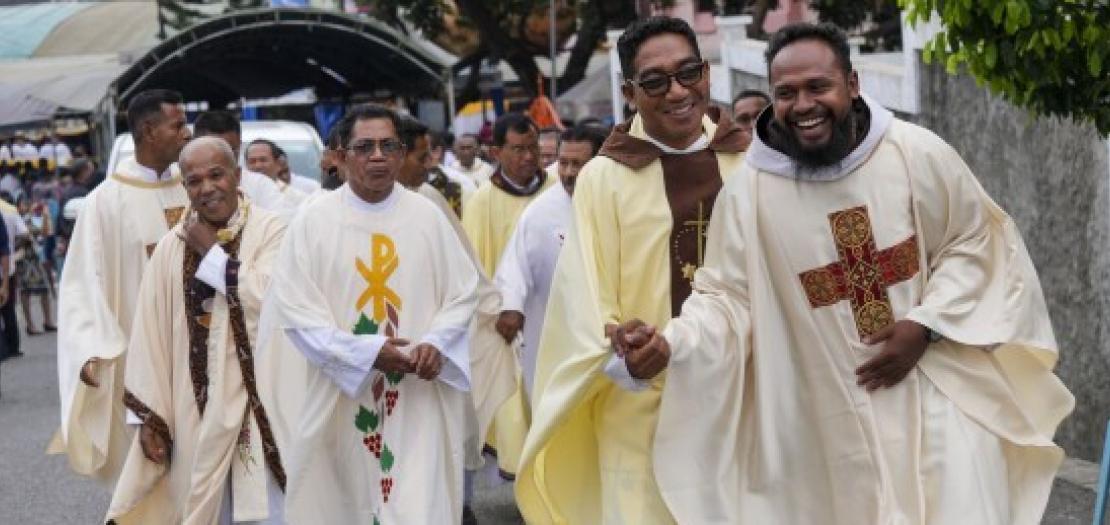
"We walk together with the Muslim population on the paths of dialogue and mercy. As Catholics, we live in an area of Indonesia where we are a small minority in society. This does not discourage or frighten us. There is a deep faith that is clearly visible in the participation of the people and that continually calls us to a relationship with others, with people of different faiths with whom there are generally no problems in coexistence," said Archbishop of Makassar, Franciskus Nipa who was the only Indonesian Metropolitan Archbishop to receive the pallium from Pope Leo XIV on June 29. "It was a touching moment of strong solidarity with the Successor of Peter. Pope Leo XIV is a Pope who was a missionary and therefore understands our lives very well," he says.
The Archbishop recounts his mission on the island of Sulawesi, the third largest island in the Indonesian archipelago, whose territory is divided into two Catholic dioceses: Manado in the north, Makassar in the south, which includes three Indonesian provinces. Archbishop Franciskus Nipa's episcopal motto is "Misericodiam volo" and expresses his deep desire "to always and completely be at the service of the people God has entrusted to me."
Archbishop Nipa previously served as Secretary General of the Archdiocese for twelve years, a fundamental role that requires direct and specific knowledge of the territory, the parishes, the problems, issues, and needs of the Catholic faithful of the diocese, approximately 250,000 in a population of over 13 million, divided into 56 parishes. Archbishop Nipa begins with the context in which Catholics live: "In Sulawesi, we generally have good relations with the predominantly Muslim population. A valuable source of inspiration for our daily life is 'Nostra Aetate,' the conciliar decree on relations between the Catholic Church and non-Christian religions.
We maintain good relations at the level of ordinary people, but also with Islamic leaders and civil authorities," he explains. "Sometimes, in certain areas of a province, the state authorities put us on the back burner when it comes to obtaining a permit to build a new church. This waiting period can drag on for years, up to 30 or 40 years, effectively denying the permit," he reports. In the past, the presence of Islamist extremists has undermined coexistence and left wounds: On March 28, 2021, Palm Sunday, there was a bomb attack at the Sacred Heart Cathedral in Makassar, killing two attackers and injuring at least 20 people.
"But we always try to overcome obstacles and find the good that the Lord places in every event," he says. "A very positive impulse," he notes, "was Pope Francis's visit to Indonesia last year. It was important for our Islamic-Christian relations. Indeed, during the preparation, we had the opportunity to meet with Muslim leaders and believers through a series of monthly meetings, held alternately in the church and the mosque, which strengthened the good relations."
"Muslims are responding positively to this commitment to dialogue, and we are encouraged. We are now all trying to put the affirmations of goodwill that emerged from these meetings into practice, into daily life," the archbishop said. As part of his pastoral ministry in the vast territory, the Archbishop also visits parishes in more remote areas, including the Tana Toraja Regency, an area where Archbishop Nipa comes from, characterized by landscapes of rice fields, hills, mountains, and villages, and inhabited by indigenous Torajan communities who practice animist worship.
The inauguration of the characteristic Church of the Holy Family, carved into the mountain rock, last January was an important moment for the Torajan people: it attracted attention for its original structure and its significance as "a church characterized by a unique integration into the natural landscape, with Christ at its center."


